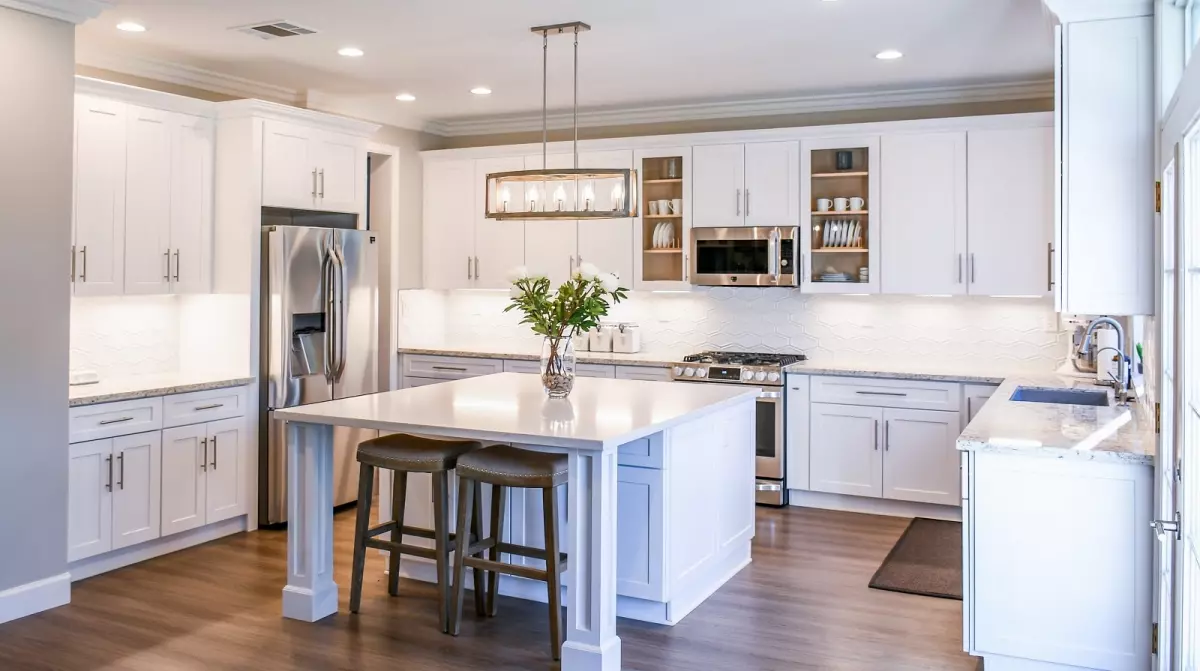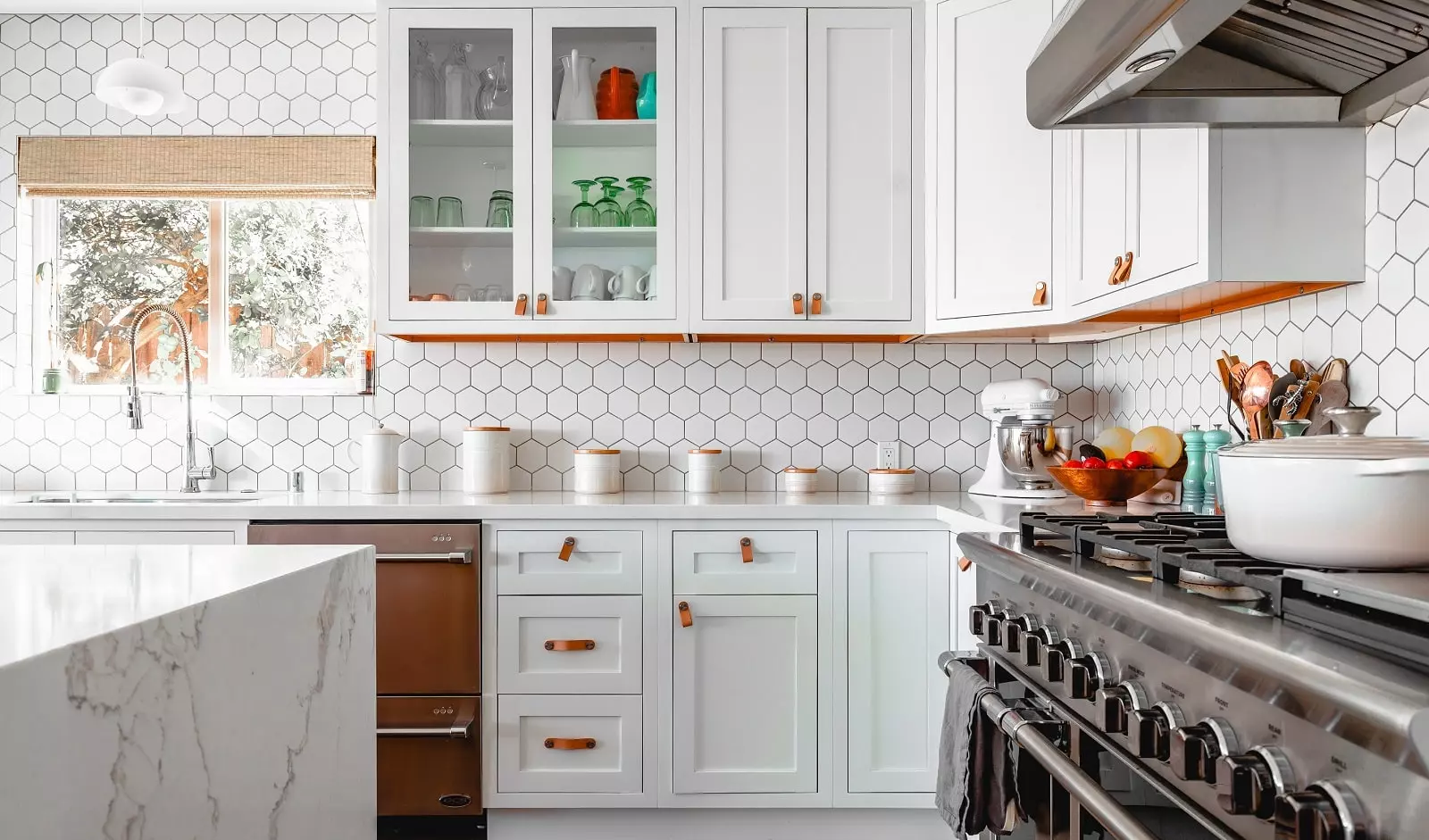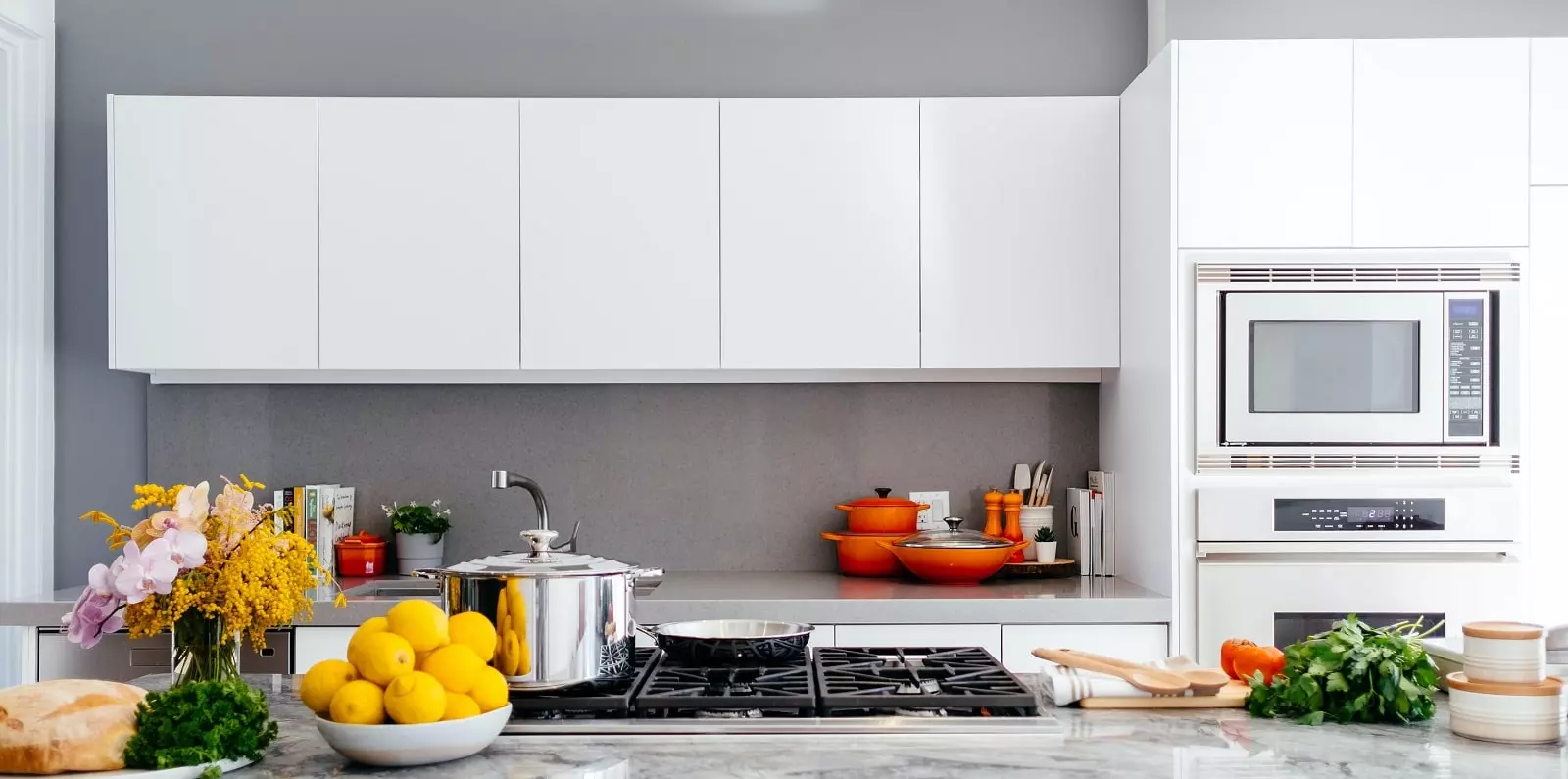If you've ever been intrigued by Chinese culture, you may have considered adopting some of its practices in your own life. One popular aspect of Chinese culture is Feng Shui, the art of arranging spaces to create balance and positive energy flow. In this article, we will explore the basics of Feng Shui and provide you with top tips for creating your dream Feng Shui kitchen.
Understanding Feng Shui
Feng Shui is the belief that the arrangement of a room can influence our health and overall well-being. According to this philosophy, the front door, the bedroom, and the kitchen form a trinity of Feng Shui, each connected to the others. The kitchen, in particular, is considered the heart of the home and a symbol of prosperity and wealth. It incorporates all the elements of Feng Shui - fire, water, earth, and metal - in one location.
 Photo by Mark McCammon from Pexels
Photo by Mark McCammon from Pexels
The Rules of Placement and Location
When it comes to creating a Feng Shui kitchen, certain guidelines should be followed:
1. Avoid placing the kitchen at the center of the house
Since the kitchen represents fire, having it at the center of the home can disrupt the flow of energy and cause health problems and instability. Consider the Feng Shui house direction when determining the placement of your kitchen.
2. Don't place the kitchen at the front of the house
Traditionally, the kitchen is believed to be a source of wealth. To avoid exposing the wealth of your home, it is recommended to place the kitchen at the back. This prevents the leakage of wealth and ensures its preservation.
3. Avoid placing the kitchen outside
An outdoor kitchen can hinder the gathering of prosperity energy (Qi) and make it difficult for the family to come together. However, if the outdoor kitchen is rarely used, it doesn't pose a problem.
4. Be mindful of the northwest section
Avoid placing the stove between the compass directions of 300-330 degrees northwest, as it can affect the health of the head of the household and women's social relationships.
5. Keep the restroom separate from the kitchen
To maintain good energy flow, it is important to avoid placing the kitchen directly in front of or facing the restroom. The clash of elements - water and fire - can disrupt the harmony and cause life disruptions.
Other Feng Shui Kitchen Rules
Here are a few more tips to consider when designing your Feng Shui kitchen:
- Opt for a rectangular layout instead of a round one.
- Avoid placing the sink and the stove directly facing or next to each other.
- Keep your laundry area separate from the kitchen and avoid piling up dirty clothes.
- Ensure that your kitchen does not face a toilet or washroom located upstairs, as waste and water can interfere with the energy flow (Qi).
- The dining area, living room, and kitchen should all be on the same level to promote a harmonious flow of energy.
Choosing the Right Colors
There is no specific color palette that universally suits a Feng Shui kitchen. The choice of colors depends on personal preference and the desired atmosphere. However, here are a few popular Feng Shui color suggestions:
- Orange or red: These colors are associated with joy and abundance. They can be used to stimulate energy and create a vibrant atmosphere. However, it's important to use them in moderation to avoid overstimulation.
- Blue: Blue complements the warm colors of the kitchen and has a calming effect. It can balance out the energy and prevent overeating. Avoid using excessive amounts of blue, as it can decrease the appeal of food.
- Earthy tones: Black is generally avoided in Feng Shui kitchens, as it can feel cold and depressing. Instead, consider using earthy tones such as olive or tan to create a warm and inviting space. If you prefer a modern look, you can use black as an accent color.

Cleaning and Storage Tips
To maintain a harmonious Feng Shui kitchen, cleanliness and organization are key. Here are some essential cleaning and storage tips:
- Keep your pantry doors and drawers closed at all times.
- Avoid piling up dirty dishes and wash them promptly.
- Store your mops and brooms in closets rather than leaving them out in the open.
- Don't hang your towels through the oven handles.
- Replace any old, worn, or broken utensils and keep everything in good working condition.
- Store knives and other cutting objects out of sight for safety and good Feng Shui.
 Photo by Rune Enstad on Unsplash
Photo by Rune Enstad on Unsplash
Additional Tips for a Harmonious Kitchen
Here are a few more tips to maximize the positive energy in your kitchen:
1. Play with lighting
Invest in good lighting, especially if you have a smaller kitchen. LED lighting options are recommended, and natural lighting is always a plus. Layering different types of lighting can enhance the energy in the space.
2. Respect the stove
Treat your stove with respect by keeping it clean and in good working condition. Alternating the burners regularly can invite new opportunities into your life.
3. Consider glass cabinets
Instead of painting your cabinets, consider using glass, which creates a breathable focal point. Frosted glass requires organization, but it allows you to showcase your kitchenware.
4. Add fruit or plants
A bowl of fresh fruit on the countertop can add color and represent wealth and health. Alternatively, you can incorporate Feng Shui plants or herbs into your kitchen for positive energy.
5. Personalize with art
Choose art pieces that reflect your personality and complement the overall style of your kitchen. Art can add color and zest to your space while creating a personalized touch.
6. Keep it clutter-free
Clear away any unnecessary items and declutter your cabinets and countertops. Only keep frequently used items on display to maintain a clean, organized space.
By following these guidelines, you can create a Feng Shui kitchen that promotes positive energy and enhances your well-being.
What are some of the Feng Shui tips you've learned along the way? Comment below and share your insights!
About the Author: Alex Green is a copywriter with more than 3 years of experience. He is passionate about healthy living and has a deep understanding of home improvement. In his free time, Alex enjoys walking with his golden retriever, meeting up with friends, and attending the gym.
Featured image from Pexels

















